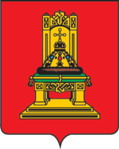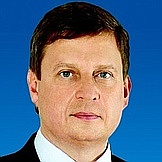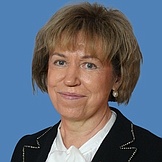Regional flags and emblems


PROFILE
Established 29 January 1935
Capital Tver
The Tver Region is part of the Central Federal District
Area 84,200 sq m
Population 1 189 700 (2025)
Ethnic groups
(2020 National Census, %)
Russian – 94,16
Other – 5,84
Administrative divisions (2024)
Municipal districts – 1
Municipalities – 30
City districts – 9
Rural districts – 14
Geography and climate
The Tver Region lies in the northwest of Russia, extending 350 km from north to south and 450 kilometers east to west.
It borders on the Pskov, Novgorod, Vologda, Yaroslavl, Moscow and Smolensk regions.
There are nearly 1,000 rivers in the region, as well as over 500 lakes, including Seliger, Sterzh, Vselug, Peno and Volga, and nine major reservoirs, including Ivankovo, Uglich, Rybinsk and Vyshnevolotsk. The main rivers are the Volga, Tvertsa, Western Dvina and Mologa.
The climate is temperate continental. The January temperatures average −4.9°C, July temperatures average 16.4°C. Average precipitation in January is 61 mm; average precipitation in July is 117 mm. Winters are warmer and precipitation is more intense in the west of the region.
There are many protected nature areas in the Tver Region. The best known are the Central Forest Biosphere Reserve and the Zavidovo State Complex, of which only part extends into the Tver Region.
Government
The legislative branch is represented by the Legislative Assembly of the Tver Region, which is the permanent, representative and only body of legislative authority in the region.
The Legislative Assembly of the Tver Region has 40 deputies elected for five years, with 20 of them running in single-mandate constituencies and the other 20 running on party tickets.
The current Legislative Assembly was elected in September 2021. Its term expires in September 2026.
The executive branch in the Tver Region is represented by The Governor of the Tver Region, the Government of the Tver Region, the top permanent executive authority in the region, regional executive authorities, representatives of the Government of the Tver Region and other executive authorities.
The Governor of the Tver Region is the region’s highest-ranking official elected for five years by Russian citizens who permanently reside in the region. The Governor is the head of the regional government and manages its work. The term of office of the current incumbent expires in September 2026.
Economy and natural resources
The Tver Region’s economy is based on the industrial, construction and energy sectors, as well as wholesale and retail trade and the transport and communications sectors.
The emphasis on industry is an important factor in the economic development of the region. Industrial output accounts for over 30% of the regional GDP. The major industries include machine building, the food, pulp and paper, chemical and power industries, employing a quarter of the region’s workforce. Some of the region-based plants are of national importance.
The majority of local defense plants is consolidated in large integrated complexes and is tasked by the Defense Ministry to address high technology issues. The leading defense plants include the Savyolovsky Machine Building Plant; Spetstekhnika; Zavod MARS; Zavod Luch; Zavod Mikropribor; Zavod Zvezda, a branch of the Pilyugin Automation and Instrument Making Research and Production Centre; Aviation Repairs Plant No. 514, and Kalyazinsky Engineering Plant.
Agriculture accounts for about 7% of the regional GDP. The agricultural sector brings together agricultural enterprises with different forms of ownership, as well as farms specializing in crop production and livestock breeding. The sector mainly focuses on livestock breeding, raising meat and dairy cattle, sheep, pigs, goats and poultry. Crop production is focused on growing flax, potato, vegetables and fodder crops. The region is the country’s major flax growing area. The region has a unique enterprise, SNAIP, which produces kumis, fermented mare’s milk.
About 54,000 small and mid-sized businesses, over half of which are self-employed entrepreneurs, are making a considerable contribution to the economic development of the region.
To develop the manufacturing sector, the region has focused on the creation of industrial sites and industrial parks that will primarily accommodate new manufacturing facilities. Today, there are six industrial parks and about a dozen investment sites in the region.
Culture and tourism
The Tver Region has a unique cultural identity and has made an invaluable contribution to the Russian culture. It ranks high among the regions with the richest cultural heritage.
Cultural heritage sites include unique world-famous landmarks, such as the Nilov Monastery on Island Stolobny in the Ostashkovo District; the Assumption Monastery in the city of Staritsa; the Znamenskoye-Rayok mansion in the Torzhok District; the Bernovo History and Nature Reserve, which has many associations with the life and work of Alexander Pushkin; and the wooden Church of St John the Baptist in the village of Shirokovo, Penovsky District. The oldest cities in the region, Torzhok, Toropets, Bezhetsk and Tver, were founded over eight centuries ago.
Since time immemorial cities in the Tver Region have been national centers of decorative needlework, gold thread work, lace-making and tile decoration.
The rich historical and cultural heritage of the region makes it an attractive tourist destination. Visitors can take advantage of fascinating and informative itineraries that increase public awareness of local culture. Today, efforts are being made to bring a new lease on life to the world-famous Pushkin Ring Along the Upper Volga Area project, which includes Tver, Torzhok and the Torzhok and Staritsa districts, the places closely associated with the life and work of Alexander Pushkin.
Every year, the Tver Region hosts many major international, national and regional events, such as the Bach International Festival, the Singing Letters Slavonic Poetry International Festival and the Musorgsky Russian Opera Festival, I see a wonderful Land Music Festival and so on.


